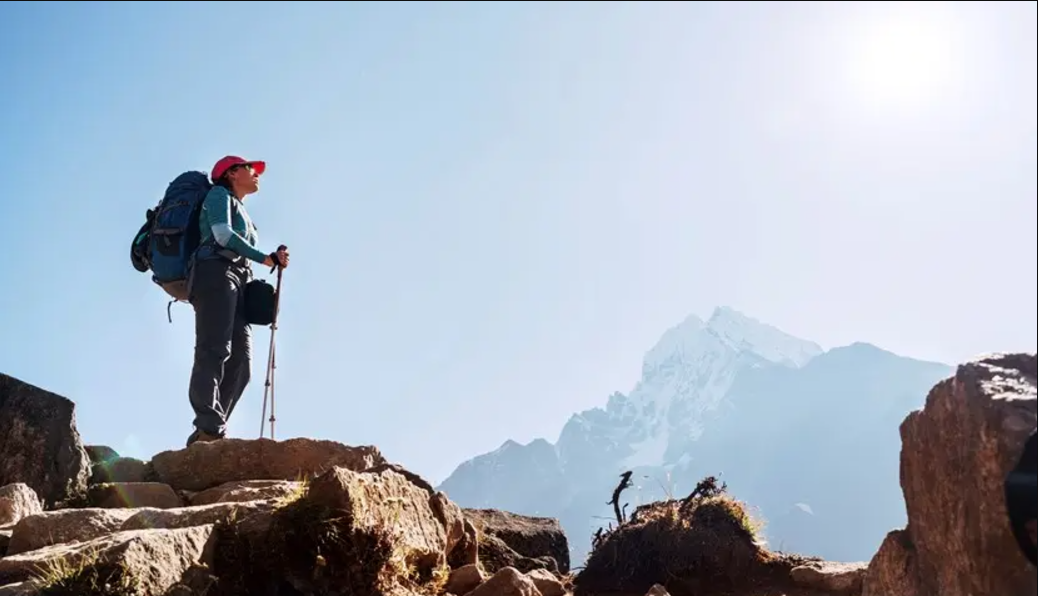
If I Were a Beginner Backpacker Today, This Is What I Would Do Differently
Share
Starting my backpacking journey years ago was both thrilling and overwhelming. While those early adventures are full of fond memories, I can't help but reflect on the lessons I’ve learned since then. If I were to start all over again as a beginner backpacker, here are the things I would do differently to make the experience smoother, safer, and more enjoyable.
1. Invest in Quality Gear Early On
When I first started, I opted for budget-friendly gear, assuming all equipment was the same. I quickly learned that quality matters. Lightweight, durable items like a titanium water bottle or a comfortable, properly-fitted backpack make a world of difference on the trail.
If I could do it again, I’d prioritize investing in essentials like:
- A reliable shelter: Lightweight tent or tarp system. Check our tent collection here.
- Good hiking boots: Comfortable, durable, and broken in before the trip.
- A proper sleep system: A warm sleeping bag and insulated sleeping pad.
These upfront investments save money and hassle in the long run.
2. Learn Basic Navigation Skills
In the age of GPS devices and smartphone apps, I neglected traditional navigation skills like reading a map and using a compass. It wasn’t until I found myself without a signal that I realized how critical these skills are.
If I could go back, I’d enroll in a basic navigation course and spend more time practicing in controlled environments before heading deep into the backcountry.
3. Pack Lighter and Smarter
As a beginner, I overpacked. My backpack was bursting with "just in case" items, many of which I never used. The extra weight made every mile feel like a marathon.
Today, I’d embrace the “pack light, pack smart” philosophy:
- Opt for multipurpose items. For example, a titanium camping flask doubles as a water container and a cooking vessel.
- Stick to the essentials: food, water, shelter, and layers appropriate for the weather.
- Use a packing checklist to avoid overloading my bag.
4. Understand My Limits
One of my biggest rookie mistakes was overestimating my fitness and underestimating the terrain. I planned ambitious routes without factoring in elevation changes, weather, or my energy levels.
Now, I’d start small with shorter trips and build up to more challenging adventures. Listening to my body and pacing myself would be a priority to avoid burnout or injury.
5. Research and Prepare for the Environment
I didn’t always research the specific terrain, wildlife, or weather patterns of the areas I visited. This led to unpleasant surprises, like encountering unexpected snow or running low on water in arid regions.
As a beginner today, I’d make thorough research a non-negotiable part of my planning. Understanding local regulations, potential hazards, and Leave No Trace principles would help me tread lightly and stay safe.
6. Prioritize Water Management
In the beginning, I underestimated how crucial water is on the trail. I either carried too much, weighing me down, or too little, leaving me dehydrated.
Today, I’d always carry a portable camping water filter system or an outdoor water purifier, check some options here. These tools are game-changers for sourcing safe drinking water on the go, allowing me to carry less and stay hydrated.
7. Join a Community of Hikers
Back then, I mostly hiked solo or relied on online resources. While solo backpacking has its charm, I now see the value of learning from experienced hikers. Joining a local hiking group or attending backpacking workshops would have accelerated my learning curve and made the journey less daunting. If you are located in Brisbane or surrounding areas join the Facebook group Brisbane Hiking Adventures.
8. Document the Journey
I didn’t take enough photos or write about my experiences. If I could do it over, I’d bring along a wireless selfie stick tripod with a remote to capture stunning views and group shots. Documenting my adventures would not only preserve memories but also help me reflect on my growth over time.
If I were a beginner backpacker today, I’d focus on preparation, simplicity, and learning from others. Mistakes are part of the journey, but with the right approach, you can minimize them and maximize your enjoyment.
Whether you’re just starting out or revisiting the basics, remember: the trail is about the journey, not just the destination. Lace up your boots, hit the trail, and don’t be afraid to learn along the way.
What are some lessons you wish you’d known as a beginner backpacker?

